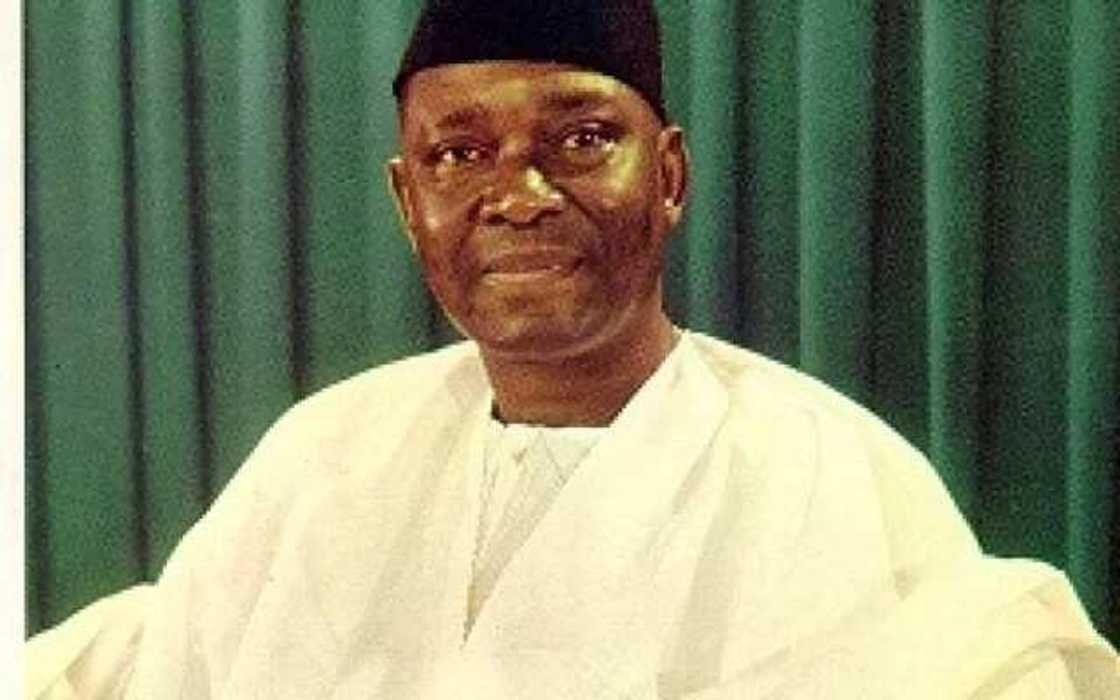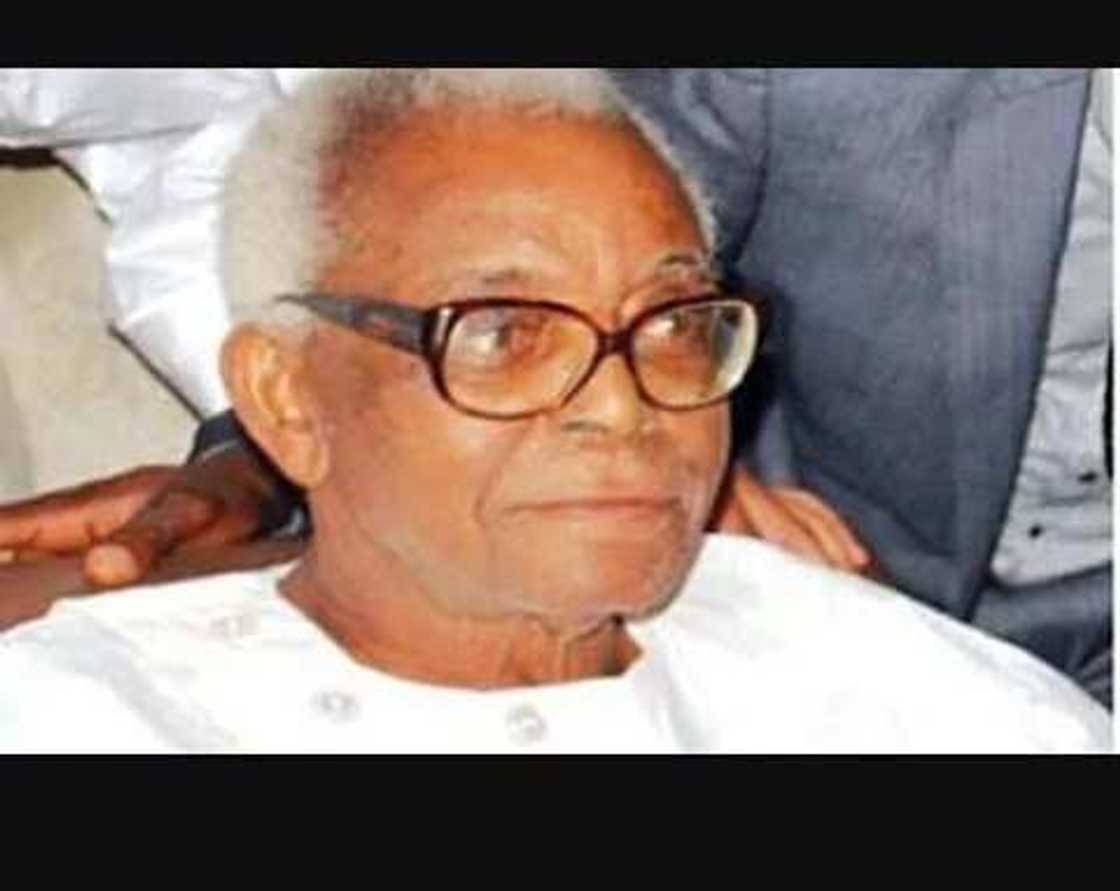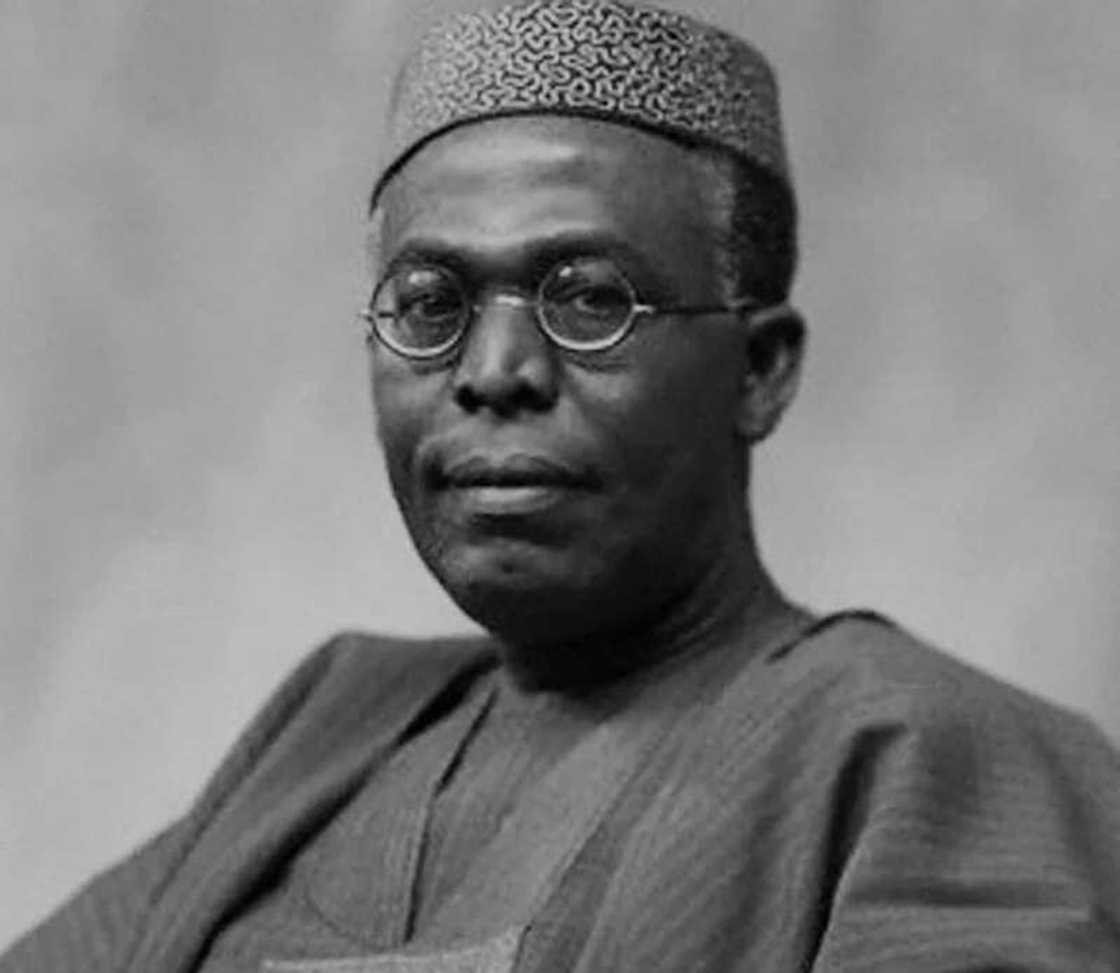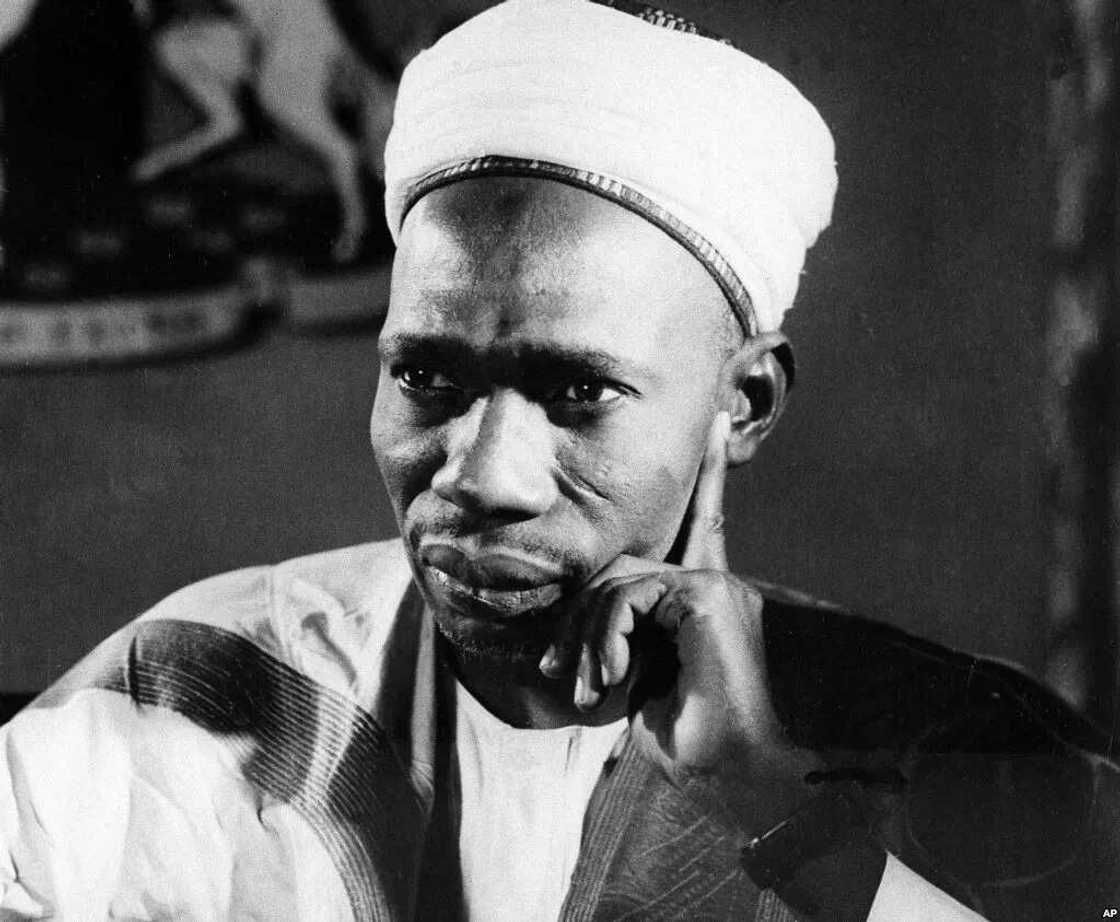How Nigeria got its independence
In this retro series, Legit.ng examines the life of four prominent Nigerians who played significant roles in the Independence of Nigeria from Britain and the lessons to be leant.
Nigeria was granted independence on October 1, 1960 but the journey to achieving the right to self-government started seven years before when Anthony Enahoro moved the motion for self-governance in the British-led parliament in 1953. Although his motion was not accepted, it triggered the beginning of a determination that would eventually bear the fruit of independence.
Foremost Nigerians like Obafemi Awolowo, Nnamdi Azikiwe and Tafawa Balewa who like Enahoro were some of the nationalists who fought for the country’s independence. The war was long and tiresome but with perseverance and determination, they were able to not only convince their colonial masters of the need for independence but prove that they were capable of self-governance. The powerful weapon they all had in common and deployed was education.
READ ALSO: How Shehu Shagari Expelled A Million Ghanaian From Nigeria
It was evident that any attempt to force the colonialists out of Nigeria would be disastrous as the country was no march militarily to Britain. It was therefore necessary to employ their pen which was their Joker in the game of leadership. Those who “challenged” the colonialist and demanded for self-government were not only academically knowledgeable but showed that they were ready and proved this with their presentation at the parliament and the logicality of their argument.
Nnamdi Azikiwe

[caption id="attachment_531625" align="alignnone" width="640"] The late Nnamdi Azikiwe[/caption]
Nnamdi Azikiwe was the first president of Nigeria. Born in 1904, he attended Holy Trinity School, a Roman Catholic Mission school and then Christ Church School. He completed his elementary education at CMS Central School where he also served as a pupil-teacher before proceeding to secondary school.
At Lincoln University in the US, Azikiwe obtained his Bachelor of Arts degree in Political Science in 1930. He also obtained two Master’s degrees in Anthropology and Political Science in 1933 at the University of Pennsylvania.
When he eventually returned to Nigeria in 1937 after first working in Ghana, Azikiwe founded the West African Pilot, a newspaper that was reputed for its nationalistic approach. Azikiwe was therefore in a pole position not only to push for Nigeria’s independence but eventually become the president.
Anthony Enahoro

Enahoro is famous for moving the motion for independence but he would have been unable to get the opportunity to make this push if he was not educated at that time. He attended Government School in Uromi, Government School Owo and King’s College in Lagos.
At the age of 21, he was the editor of editor of Nnamdi Azikiwe's newspaper, the Southern Nigerian Defender thereby becoming the country’s youngest editor ever. He later became the editor of Zik's Comet, associate editor of West African Pilot and editor-in-chief of Morning Star.
Apart from moving the motion for self-government, Enahoro also was a delegate to most constitutional conference that ked to independence.
Obafemi Awolowo

An elder statesman who fought for Nigeria’s independence, Awolowo attended Baptist Boys' High School and became a teacher at Abeokuta in Ogun state.
He studied and qualified as a shorthand typist and served as a clerk at Wesley College. He went to the UK in 1944 to study law at the University of London. He founded the Nigerian Tribune in 1949 which he used to spread the ideology of nationalism.
Awolowo who has been described as a philosopher founded the Action Group in 1951 and used the party as a platform to push for Nigeria’s independence.
READ ALSO: The practice of carrying things on the head
Tafawa Balewa

Tafawa Balewa was born in 1912 and schooled at Barewa College. He taught at the Bauchi middle school before proceeding to London to study at the Institute of Education of the University of London.
He first became an Inspector of schools for the colonial administration when he returned to Nigeria but entered politics and was elected into the northern House of Assembly in 1946.
From then, he proceeded to the Legislative Assembly in 1947 and with Ahmadu Bello, the first premier of northern Nigeria, formed the Northern Peoples’ Congress.
Balewa soon rose politically and was a prominent force in the pursuit of Nigeria’s independence. He eventually became the prime minister of the democratic country.
The pen is mightier than the sword
What Azikiwe, Enahoro, Balewa and Awolowo represent is the strength in education and how their collective effort convinced the colonialists that the Nigerian nationalists were now at the same level with the Europeans. Their solid argument in the Legislative Assembly indicated that they were ready for self-government. Without firing a single gun or engaging in riot, the nationalist put forward a solid case that finally led to the granting of independence.
The weapon of education that put the colonised side-by-side with their master has sadly diminished in Nigeria as the educational sector is given minimal attention by the government. The first university in Nigeria, established in 1948, University Ibadan which later became the University of Ibadan was at the period it was established one of the leading institutions in the continent and considered a sort of a satellite campus of its London counterpart.
READ ALSO: The mystery around the death and installation of Yoruba kings
The University of Ife which later became Obafemi Awolowo University was established to protest the Ashby commission which recommended establishment of regional universities in the north, east and Lagos. Due to the high level of literacy in the south fuelled by free education, there was need to establish a university to cater for the high number of secondary school graduates the region was producing and Awolowo played a major role in this development.
Sadly the rise in academic development has stalled and has almost begun a downward movement. Only a single Nigerian university made the top 1000 world university ranking while their Egyptian and South African counterparts continue to get better.
If the country is not careful, the labour of our hero’s past will be in vain.
Source: Legit.ng


